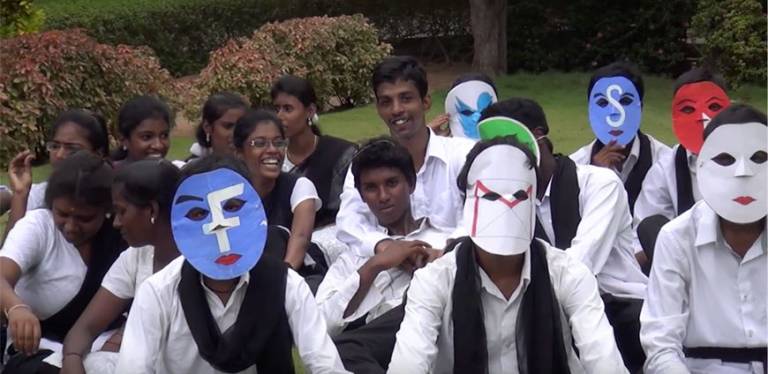UCL launches free online course examining global social media impact
12 January 2016
Anyone with an interest in how social media is used around the world can now sign up for Why We Post: The Anthropology of Social Media, UCL's first MOOC (massive open online course).

The free five-week course, provided online via the FutureLearn platform, takes a comparative and anthropological approach to social media use around the world.
The content of the course is informed by key discoveries from a five-year European Research Council-funded project known as the 'Global Social Media Impact Study' which looked at the uses and consequences of social media globally.
Nine researchers from UCL Anthropology spent 15 months examining social media use by people living in different places around the world. These included a factory town and a rural town in China, a town on the Syrian-Turkish border, low-income settlements in Brazil and Chile, an IT complex set between villages in South India, and small towns in England, Italy, and Trinidad.
Course participants of the MOOC will meet many of the people who informed the study through films, engage with the research team through video discussions and lectures, and encounter their ideas through animations, infographics and text.
The course, which starts on 29 February 2016, is suitable for anyone interested in social media - from professional marketers wanting to understand cultural contexts, to anthropologists, to those who simply have an interest in the topic.
Professor Daniel Miller (UCL Anthropology), one of the course developers, commented: "Few topics currently elicit as much discussion as the uses and consequences of social media, with daily claims about its impact on everything from cognition to politics. But how much is really known about its global impact? Is the impact of social media the same for people everywhere?
"For anyone who is serious about understanding the impact of social media, we feel this research will be a revelation. Whether we are concerned with politics, education, gender, commerce or communication, it turns out that the use and consequences of social media varies hugely depending upon which region we focus upon. Even we were astonished by many of our discoveries."
In addition to the English language version, you can register for the course in Chinese, Hindi, Italian, Portuguese, Spanish, Tamil and Turkish on UCLeXtend.
Alongside the MOOC, UCL Press are publishing a series of 11 open access books about the project, the first three of which are coming out on 29 February 2016.
A project website which includes over 100 short films made in the field and many short stories about individuals the team encountered will also present many of their findings as "discoveries" or generalisations nuanced by perspectives from each of the fieldsites. As with the MOOC, the website and films will also be available in eight languages.
Watch a trailer for the course:
Image
- School children from the South Indian project fieldsite (Credit: Why We Post)
 Close
Close

